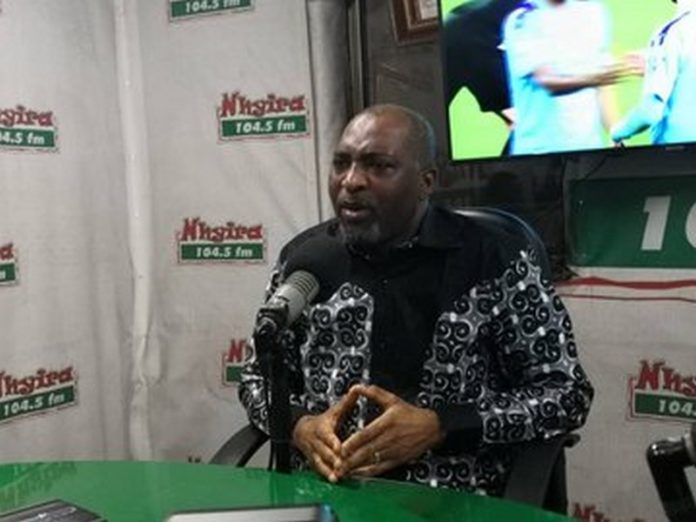Minority Chief Whip, Muntaka Mubarak, has vehemently disagreed with Speaker Alban Bagbin on his decision to refer three Members of Parliament (MPs) to the Privileges Committee.
The Asawase MP noted that a substantive motion will be filed to challenge the Speaker’s decision.
The three are the Dome-Kwabenya MP, Sarah Adwoa Safo; Ayawaso Central MP, Henry Quartey and Assin Central MP, Kennedy Agyapong.
The three NPP MPs, according to the votes and proceedings of the House, have absented themselves from Parliament for over 15 days without the Speaker’s permission.
Mr Mubarak contended that the Speaker’s decision is not in the right direction. He, therefore, called for a unanimous decision for all MPs to resist the Speaker’s decision to refer their colleagues to the Privileges Committee insisting that the Speaker cannot continue to accept petitions from outsiders, suo motu.
“It is on this basis that I call on all of us to resist the attempt by Mr Speaker to refer our colleagues to the Privileges Committee and if there is a justification, let us get one of us, as Member of Parliament, who is convinced that our colleagues need to do that and not allow Speaker to do this…if we allow this to stand, it will become precedent and tomorrow it may hurt each one of us,” he said on the floor of the House on Tuesday.
Mr Bagbin on Tuesday referred the three MP from the New Patriotic Party to the Privileges Committee, for their continuous absence in Parliament.
Delivering his ruling on the floor of Parliament on Tuesday, Mr Bagbin explained the absence of the MPs is in breach of Order 17(1) of the Standing Orders of Parliament and Article 97 (1) (c) of the Constitution.
“I have accordingly come to the irresistible conclusion that a Member who absents himself or herself from 16 sitting days of Parliament in a particular meeting, without the permission in writing of the Speaker falls squarely within the ambit of Article 97, clause 1(c) of the 1992 Constitution and Order 16 (1) of the Standing Orders of Parliament”, he stated.
Mr Bagbin also made reference to a previous ruling by the Court of Appeal in 2008, in the case of Professor Stephen Kwaku Asante versus the Attorney-General and three others.
According to him, the Court of Appeal ruled that, “the permission granted by the Speaker for a member to be absent from the proceedings of the House cannot exceed 15 days at any point in time. And that it is unacceptable for Parliament to grant permission to be absent to a member for a period exceeding the 15-day threshold as envisaged under Article 97, clause 1(c) and the Standing Orders of Parliament.”

